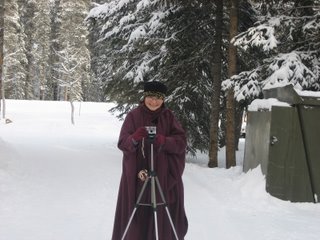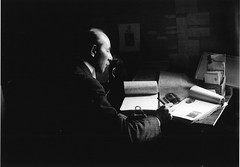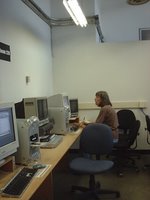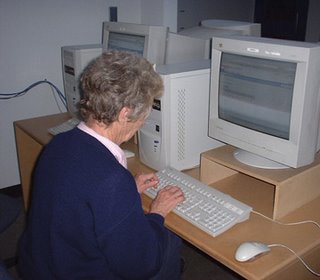
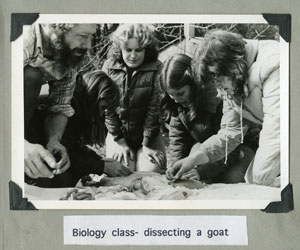
In an email with the subject line "Linda with a blog" to potential contributers, the former owner of Fiddlehead Farm begins: "It has taken my retirement to be able to begin to learn my way around a computer. This form of communication is not my favorite. I did realize that if I wanted to reconnect with the travellers to fiddlehead the only way I could do it was through the internet."
The Fiddlehead Farm Memoirs blog is an ongoing collaboration between myself and Linda S. She is a person who, for philosophical and practical reasons, is very careful about how much of her time and energy she invests in communication which isn't face to face. Over a thirty year period, Linda created instant community for hundreds of young people, from students to international travelers, at a unique place in the rainforest near Powell River, BC.
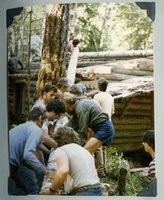
The history of Fiddlehead is, I believe, a very strong narrative in its own right. Fiddlehead was always a place of community. From a sixties commune, it evolved into an alternative school for "at-risk" teens in the seventies, and then into a youth hostel that was quietly famous among backpackers. I became a regular visitor in the early nineties, just before the secret of Fiddlehead got out. For example, Vancouver Magazine, in its "Nirvana Report" -- linked to Linda's blog -- revealed to the BC locals that it was a place "which will loofah the cynicism out of the most hardened urbanite".
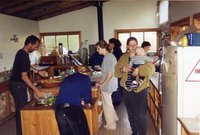
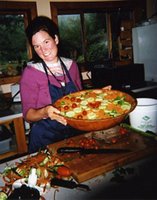
Linda retired in 2003, and sold Fiddlehead to a man who promised to continue to run it as an eco-recreational place: a horse-riding retreat. Instead, he clearcut the forest and burned the handmade buildings. It took Linda years to get over the shock. But last June, at a Fiddlehead reunion, it was clear to me that she had recovered and was ready to think outside the box.
We spent time together in July, scanning her photos, while she clarified three objectives. First, she wanted to find a way to reconnect with individuals who still consider their time at Fiddlehead as having been an important part of their personal history, but whose physical addresses were lost when the logbook was burned in 2003. She also wants to collect stories and photos about the Farm from many points of view, since she has already been approached by a filmmaker and by someone who would like to help her do a book. Finally, she wants to preserve her own aging photographs, and create a digital archive of photos from diverse collections.
Over the rest of the summer, Linda not only opened her first email account, but also launched the Fiddlehead Memoirs blog. Here is the link to her blog.
Fiddlehead Farm Memoirs


